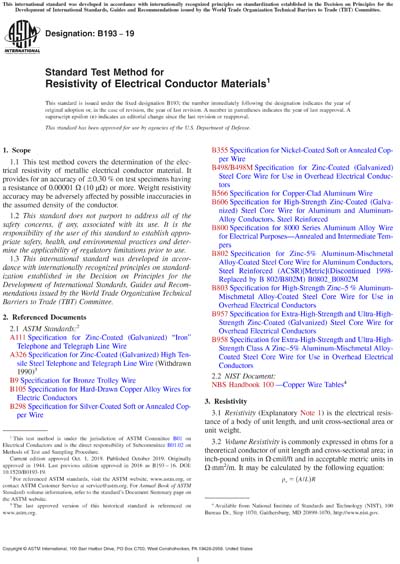Historical
ASTM B193-19
Standard Test Method for Resistivity of Electrical Conductor Materials
1.1 This test method covers the determination of the electrical resistivity of metallic electrical conductor material. It provides for an accuracy of ±0.30 % on test specimens having a resistance of 0.00001 Ω (10 μΩ) or more. Weight resistivity accuracy may be adversely affected by possible inaccuracies in the assumed density of the conductor.
1.2 This standard does not purport to address all of the safety concerns, if any, associated with its use. It is the responsibility of the user of this standard to establish appropriate safety, health, and environmental practices and determine the applicability of regulatory limitations prior to use.
1.3 This international standard was developed in accordance with internationally recognized principles on standardization established in the Decision on Principles for the Development of International Standards, Guides and Recommendations issued by the World Trade Organization Technical Barriers to Trade (TBT) Committee.
Content Provider
ASTM International [astm]






